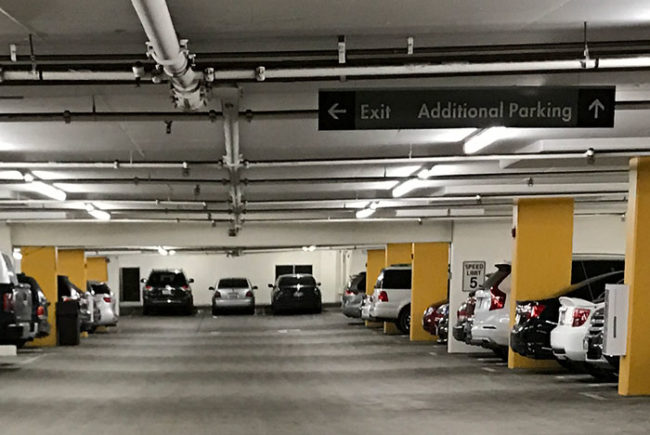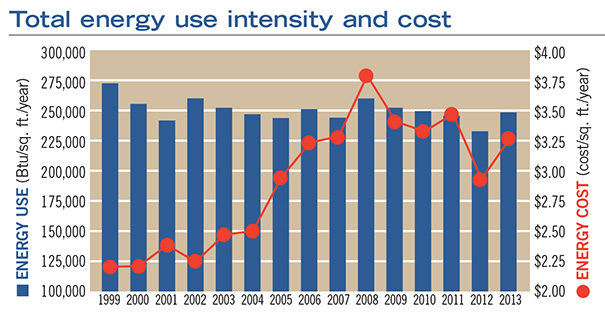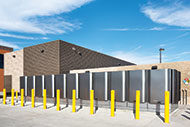A West Coast community hospital with 181 beds is finding that its decision to install a fuel cell continues to help it meet its long-term sustainability goals by providing clean, efficient energy that cuts costs and carbon emissions.
Since the fuel cell was installed in 2010, the hospital has been able to conserve 1.2 million gallons of water annually and achieve energy savings of $170,000 a year.
Committed to improving the patient care experience through advanced technology and services, the hospital installed a Doosan (south Windsor, Conn.) PureCell Model 400 fuel cell to provide clean, reliable energy to the 350,000-sq. ft. facility.
The unit provides 0.64 million Btu/h of high-grade heat (250 F) for space heating and 0.88 million Btu/h of lower-grade heat (140 F) for hot water heating.
The 400kW fuel cell meets 63 percent of the hospital’s electricity needs and 50 percent of the facility’s space heating and hot water requirements through on-site distributed generation – reducing the hospital’s reliance on the power grid.
The fuel cell also reduces nitrogen oxides by more than two metric tons each year – the environmental equivalent of removing 121 cars from the road.
The unit also reduces the facility’s carbon footprint by 652 metric tons each year, which equates to planting 151 acres of forest, assuming each acre of forest absorbs 1.3 tons of carbon per year.
Doosan supplied fuel cells to St. Francis Hospital and Mount Sinai Hospital, located on separate campuses in Hartford, Conn., and both owned by St. Francis. The fuel cells have reduced energy costs by about 20 percent at each facility and cut carbon emissions by hundreds of metric tons.
"With fuel cells on each campus it allows for a reliable power source on site,” says Robert J. Falaguerra, vice president of facilities, support services and construction, St. Francis Hospital. “In addition, the high efficiency of the power plants is a way to save energy while promoting a health environment."
Despite the numerous benefits and hospitals being a good application for the technology, only about seven hospitals or systems – all on the East or West Coast – have installed fuel cells so far.
Kaiser Permanente, Oakland, Calif., is a major proponent and has installed fuel cells at seven of its health care facilities and the units generate 4.3 MW of power. Along with on-site solar installations, fuel cells helped Kaiser reduce greenhouse gas emission at the seven hospitals by more than 17,700 metric tons in 2013, according to the Fuel Cell and Hydrogen Energy Association.
Nancy Larson, marketing communications manager, Doosan Fuel Cell America, says the payback for a fuel cell usually is less than six years. Financial assistance is usually available for hospitals to install fuel cells and leasing options can be available too.





